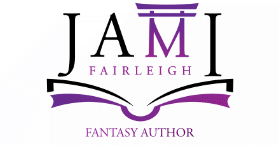
Write for Who You Know

I was recently tasked with writing a short story intended for a reader I cared about. Someone who meant something to me. I found the assignment daunting. Who should I pick to write for? Should I pick my audience based on the story that pops into my head? How do you plan a story for one particular person? It seemed that the easiest thing to do would write a story for one of my young nieces or nephews. But what’s the fun in being easy? (wink)
I decided to write a story for one of my dearest friends. She’s days away from a big birthday and she’s been tremendously supportive of my writing ambitions. Once I had picked my victim reader, I still wasn’t sure how to plan a story for her. Would she like a thriller? Horror? Scifi? A love story? A mystery? I read about how authors have written books for their children, their lovers or spouses and I wondered how they got started. I worried at the assignment for a while and then it hit me- I’d make up a story, much like the many stories we’ve shared over the years about our own lives.
Once that decision was made, the story fell into place. I grinned as I listed all of the terrible things that could happen to the character. Once I had fleshed out the bones of the story, I started filling it in with details that I knew would elicit emotional reactions from her. I modeled the main character after my friend. I peppered the story with characters named for the people in her life. I even contacted her sister for the names of some high-school flames and wove that in. It was a ball to write, and (spoiler alert!) she loved it. She even printed and bound it, even though I protested that it was just a draft. I got the best review ever- I doubt I’ll ever receive another review on my work that is as flattering or encouraging.
So there. I had done it. Assignment complete, very happy friend. The end, right? I knew my friend would like it- I wrote the whole darned thing and tuned it for her exactly. But to my surprise, writers in my online writing group connected with the story too. Even though they didn’t know the characters were named for real people, or know my friend’s circumstances.
Huh thought I, with great eloquence. The online writers who provided critiques connected with my protagonist and had emotional responses to the story. Our latest assignment is to take one of the first stories we wrote in the class and edit it. I decided to tighten up the story I wrote for my friend and take it to my real-life writing group to see if the story had legs.
When my turn came to hand out my story, I shrugged and said, “I wrote it for a friend. As an assignment”. There thought I. If these writers find the story silly and unworthy, at least I have an excuse.
The most amazing thing happened. As they read, they snorted and chuckled, exclaimed and guffawed. They laughed, giggled, and universally breathed a sigh of relief when they read the ending.
They responded exactly how I imagined my friend would, and their critiques, while not quite as exuberant as my friend’s, were highly encouraging.
This was epiphanic for me. The writers connected with my character in a way I haven’t seen before with my writing. Even though I wrote the story for one particular person in mind, the feelings of discomfort that the story was meant to elicit from my friend are universal for all people.
I suddenly recognized that all of my writing should be focused on the reader. Not “readers” in the broadest sense, but Reader, as in my friend. My goal should not be to write for the nameless, faceless demographic I *think* might like my writing. Instead, I should write for my friend, or sister, my favorite co-worker or one of my writer friends.
When writing for my friend, I put thought into what she would like and where she might feel too comfortable with the story. Writing with my friend in mind inspired me to do more with the story than I might have otherwise. And best of all, it was fun!
Deanna, you get the dubious honor of being my first muse. Thank you, sweet friend. And happy almost birthday!
Have you written with a particular person in mind? How did it go?

I love this! I know when I’m writing I can easily forget about the reader, instead focusing on being clever in my writing or trying to prove a point. Reading this helps remind me how import the reader is, and that writing is to impart a story to a friend, not to make me feel better about myself.
Thanks Iseult! It really was an illuminating experience. When I start my 3rd draft, I’m going to have the likely reactions from my #1 fan in mind for every scene.